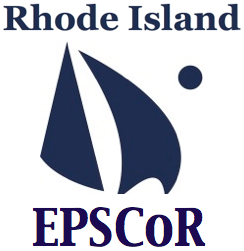Metcalf SciComm Exchange series kicks off 
From out in the field to deep in the lab, scientists across the Ocean State are working on cutting edge research to resolve some of the most compelling issues of our time.
In particular, funded by the Rhode Island NSF Experimental Program to Stimulate Competitive Research (EPSCoR), scientists at nine of the state’s colleges and universities hope to generate understanding of climate change impacts so that we can better prepare and respond.
And yet, the lifelong devotion to research and teaching, to exploration and discovery, is not enough. Scientists also must take their complex work and boil it down for the general public to understand, both to assist informed policy-making and draw continued funding support.
“The challenge is to take your story and communicate it so reporters will understand it, so the public will understand it, so funders will understand it,” explained Meaghan Wims, Public Relations and Public Affairs Group, Duffy & Shanley.
Wims joined Annie Sherman Luke, author and the managing editor, Newport Life Magazine, at the first SciComm Exchange, a newly launched Metcalf Institute series of professional development programs with support from Rhode Island NSF EPSCoR.

Dr. Sunshine Menezes, Metcalf executive director, said it was difficult for scientists to set aside the time to gain professional development outside their discipline: “We organized the SciComm Exchanges to make it as easy for Rhode Island faculty, research staff, and grad students to gain new skills and confidence in science communication.”
During the inaugural session held on the Brown University campus, participants gained tips on how to craft clear, concise messages. Future exchanges will explore other communications-related topics.
As the SciComm group ate lunch, Wims held up a line drawing of a house with three rooms, noting that people only will remember three ideas from the information offered.
Take all the years of research, the hours of work in a lab, and stuff it into a three-room home — an overall theme (house) and three messages (dining room, family room and kitchen).
“So, what’s the big idea?” Wims asked. “Why is your research really cool?”
From the media perspective and pitching stories to editors and reporters, Sherman Luke asked participants to think about: “What’s the point? Why should people care? Who does it affect? Is there a timing relevance? Has this ever been done before? How is it unique?”

She advised scientists to pull out key, interesting points and share the passion for their work, but keep the message simple. Pique people’s interest, but don’t make their eyes glaze over with clinical terminology and impersonal data.
“I get that look in my eyes sometimes,” Luke said, laughing. “But, it doesn’t mean I’m not interested in learning more.”
Much of the hour-long session was devoted to questions and answers, along with sharing positive experiences and difficulties encountered.
Dr. Menezes said the SciComm Exchange programs are intended to encourage more scientists to discuss how to share their research with public audiences, whether directly or through traditional media outlets.
“We hope that they will leave with a broader understanding of what different audiences want, whether it is a reporter or a member of the university’s media affairs office, or an interested member of the public who chooses to attend a lecture,” she said.
Given the time demands, Dr. Menezes said the sessions would not answer all questions or address every issue: “Instead, we just want to make them aware of some new perspectives and, hopefully, encourage active discussions among the state’s research community about how to better communicate their work to Rhode Island citizens.”
Story and photos by Amy Dunkle


 Rhode Island EPSCoR is funded by the National Science Foundation under EPSCoR Research Infrastructure Improvement Award #OIA-1655221 (Sept. 2017-Aug. 2022). Any opinions, findings, and conclusions or recommendations expressed in this material are those of the author(s) and do not necessarily reflect the views of the National Science Foundation.
Rhode Island EPSCoR is funded by the National Science Foundation under EPSCoR Research Infrastructure Improvement Award #OIA-1655221 (Sept. 2017-Aug. 2022). Any opinions, findings, and conclusions or recommendations expressed in this material are those of the author(s) and do not necessarily reflect the views of the National Science Foundation.